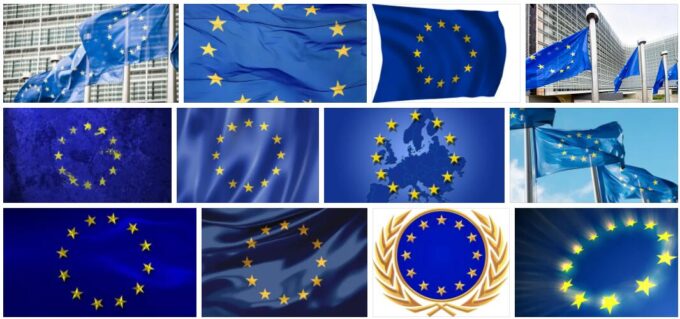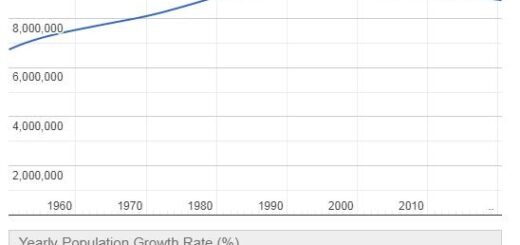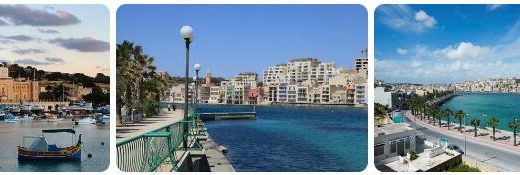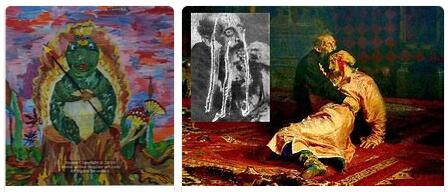European Union 2001
Yearbook 2001
European Union. Here are some of the events and decisions within the EU that got the attention during the year.
The EU-US banana war ended in 2001. In the eight-year conflict, the EU was accused by the US of importing bananas only from former European colonies in Africa and the Caribbean, which disadvantaged banana exporters in Central America. To put pressure on the EU, the United States imposed 100% penalties on a variety of goods exported from the EU to the United States. The EU is now changing its rules on banana imports and is starting to buy bananas again from Central America while the US is raising its penalties.
Bank charges. The banks must reduce the fees for cross-border payments in euros – it must not cost more than one payment within the country. For withdrawals in ATMs, the regulation will start to apply on 1 July 2002 and for other payments one year later. Countries that are outside EMU, Sweden, Denmark and the United Kingdom are free to choose whether to adopt this regulation.
Bavarian beer, Swedish problem. Bayerisches Bier has been protected as a geographical indication, which means that only beer from the German state of Bavaria may be called so. The protection also applies to translations and allusions to the original designation. The EU decision poses problems for Swedish Spendrups. brewing beer called Spendrups Bavarian. However, the company’s CEO Jens Spendrup explains that they intend to continue brewing and selling their beer.
Dioxin in fish. Sweden and Finland negotiated an exemption for domestic fish consumption from new limit values for dioxin in fish. The new maximum limit from 1 July 2002 for the dioxin content is 1.25 picograms of dioxin per gram of fish meat. The rules apply until 2006, when all limit values for dioxin in food must be reviewed. The exception rules for Sweden and Finland mean that oily Baltic fish with higher dioxin levels, mainly herring, salmon and eel, can continue to be sold in these two countries. However, the condition is that consumers are informed about dietary recommendations for the risk groups, e.g. young women of childbearing age. However, fish exceeding the limit value for approved dioxin content must not be sold to any other EU country nor used as animal feed.
Drinking water. Sweden incorporates the EC drinking water directive into the Swedish regulations, which imposes new limits on when the water is unfit because it contains pesticides, nitrates, copper or fluoride. The new Swedish quality requirements for tap water are slightly higher than the minimum drinking water directives. It also becomes mandatory to look at the quality of the wiring networks – previously this was just a general advice. The rules start to apply on Christmas Day 2003.
Organic products receive a common EU logo in all member states, according to a decision by the European Commission. Labeling may be used on pre-packaged Goods where at least 95% of the product’s ingredients are organic raw material. National markings, such as the KRAV or Demeter mark, may be used in conjunction with the logo.
EU authorities. At the Laeken summit in December for EU heads of state and government, there was a great deal of trouble and collapse in the negotiations on the location of EU authorities. The first and biggest dispute concerned the Food Authority, where 14 of the 15 member countries first supported a placement in Helsinki. However, against this proposal, Italy strongly objected and pleaded for the placement of the authority in Parma in its own country.
In anticipation of a future decision, the Food Authority will be provisionally placed in Brussels on 1 January 2002. The Union Prosecutor’s Office, Eurojust, will be provisionally placed in the Netherlands The Hague, which is also expected to be the permanent location once the heads of state and government can agree.
European Science Advisory Council, or ESAC abbreviated by ABBREVIATIONFINDER, a new expert advisory body to assist EU politicians in complex issues related to science, the environment and medicine. It was officially formed in June at a meeting at the Royal Swedish Academy of Sciences in Stockholm. Professor Uno Lindberg, foreign secretary at the Academy of Sciences, was elected the first chair of the expert body.
Hazardous waste. A number of new types of waste are classified as hazardous waste from 1 January 2002. Examples of hazardous waste in the EU’s new waste list are impregnated wood, electrical and electronic scrap such as old refrigerators, scrap cars, cables containing oil or harmful substances, construction waste containing asbestos and waste from sulphide ore mines. According to EU rules, everyone who handles hazardous waste must seek special permission from municipalities or county boards.
The Falukurven has received special protection from the European Commission. In order to be protected, the product must have special properties that distinguish it from similar products or that the product has proven properties. Specific protection does not mean that fallow sausages may only be manufactured in Falun or in Sweden, but if a fallow sausage is manufactured in, for example, Germany, it must comply with the specific product specification. The symbol for special protection is a ring with EU stars surrounded by the text “Guaranteed traditional specialty”.
Refugee Policy. The EU countries agreed on a joint action plan to quickly provide temporary protection to a large number of refugees in exceptional crisis situations. This may be the case when thousands of people were driven from their homes in Bosnia and Kosovo. The financial burden for this type of refugee reception should be shared evenly between EU countries. The temporary refugees are entitled to reunite with their families. By family is meant spouses, cohabitants and their children. Whether additional family members are to be covered is determined by the respective recipient country. The refugees should be allowed to take up work immediately and they must also be guaranteed housing, emergency care and education. A temporary protection decision lasts for one year, but can be renewed automatically for another twelve months. The protection can be granted for a maximum of three years.
The rules for temporary protection should not replace the normal asylum procedure, but the refugees should have the opportunity to have an asylum application tested.
Football players should not be regarded as any workers. To avoid the risk of players switching clients at short notice, the football organizations agreed with the European Commission on a framework for player transitions. The settlement involves, among other things, that when a player under 23 is recruited, the original club should be able to receive financial compensation. A solidarity system will be created to compensate the clubs that lose players. In case of breach of contract, it is the national courts that can ultimately decide which compensation is reasonable.
GMOs. There will be stricter requirements for labeling and tracking of genetically modified organisms, GMOs, in food and feed, according to a proposal from the European Commission. If GMO has been used, they should be traceable throughout the food chain, from the farmer to the dining table. All foods containing GMOs must also be labeled in the trade. The Swedish Food Agency supports the proposal.
Transparency. For the first time, citizens have been given a law on transparency in the EU and the right to access documents from the three EU institutions Council of Ministers, Parliament and the Commission. EU public law does not go as far as Swedish law, but goes further than legislation in many of the other countries. Sweden has been a driving force in the issue of expanding citizens’ transparency in the EU; France, Germany and Spain have shown the least enthusiasm. As a success for the EU’s openness, an EC judgment states that it is the content of a document that should be confidential, not the document itself. According to this, parts of a document should be disclosed.
Participation. EU labor ministers agreed on an EU-MBL, a law that gives workers influence in their workplace through information and consultation with company management. The rules shall apply to companies with more than fifty employees or operating facilities with at least twenty employees. Sweden already has a co-determination law, and is thus not very much affected by EU-MBL. However, adapting to EU regulations may mean that companies will be fined more if they violate MBL. The proposal for minimum rules on the influence of workers is one of the major achievements of the Swedish Presidency of the EU. In the long run, Britain opposed these EU rules.
VAT on digital products. Vendors outside the EU will be charged VAT on the price of computer games, software and other digital products sold on-line via the Internet to private individuals. When products are sold to companies (90% of the market), the current VAT system should continue to apply, which means that VAT must be paid by the importing company.
Trafficking in human beings. There will be harsher punishment, a minimum of eight years in prison, for people who engage in human trafficking, according to a framework decision agreed by EU countries. A common definition of what is human trafficking should facilitate the police cooperation of the countries. Trafficking in human beings involves the recruitment or transport of people for the purpose of exploiting them in prostitution or in other types of work. It is also punishable to receive the smuggled people and exercise some kind of control over them. The operation is illegal if the victims are misled or their vulnerable situation exploited – even if no coercion, violence or threats have been used.
In July, SAS and Maersk were convicted of violating EU competition law. Airlines SAS and Danish Maersk Air were fined almost SEK 400 million and SEK 130 million respectively. The year before, it had been discovered that the companies had entered into a secret agreement to divide the market. The agreement gave SAS a monopoly on the Copenhagen-Stockholm route and an increased market share on the Oslo-Copenhagen route.
Divorce in an EU country should automatically be recognized throughout the Union, according to an EU regulation. The Swedish Parliament has also approved the proposal to introduce a new law to enforce foreign divorce judgments in Sweden.
Combating terrorism.Following the terrorist attack on the World Trade Center in New York, on September 17, 2001, the EU proclaimed a day of mourning to manifest its solidarity with American citizens. A declaration called on EU countries to step up efforts to fight terrorism. In November, the European Commission adopted a regulation on terrorism, which This meant that the countries should comply with the UN sanction against 46 organizations and 16 private individuals who were labeled as terrorist financiers and for having contact with the Taliban leader Usama bin Ladin or the al-Qaeda terrorist organization. The sanction imposed was an immediate freeze on the designated financial assets of all EU countries. Among the designated were the Swedish part of the payment company al-Barakaat, a company for the transfer of money to Somalia in particular.
The definition of EU Justice Ministers states, inter alia, that crimes that could seriously harm a country or international organization should be considered as terrorist crimes. However, it was agreed that violent protesters should not be labeled as terrorists. In Swedish legislation, the concept of terrorism does not exist, and Sweden has explained that the country may deviate from the EU agreement if the Riksdag subsequently makes such a decision.
Tetra Pak must not grow. The European Commission banned the Tetra Laval group, which includes the packaging company Tetra Pak, from buying the French company Sidel SA, the leading manufacturer of PET bottles. The ban is justified by the fact that a purchase would mean that Tetra Pak, which is already the world’s largest manufacturer of cardboard packaging, would have an overly dominant position. Only two countries, including Sweden, objected to the ban on corporate acquisition.
Tobacco. A compromise was adopted with tougher rules for the sale of tobacco. As of September 30, 2002, 30% of the front and 40% of the back of the cigarette packets will be covered by warning texts such as “Smoking kills!” or specific information about e.g. lung cancer. It becomes free to demand images of e.g. a cancer-affected mouthpiece on the packages. The tobacco companies are forced to report all substances in a cigarette, and they are prohibited from using terms such as “mild” and “light”.
Customs duty is introduced by the EU in trade with 48 of the world’s poorest countries. The decision means that the duties are immediately removed on import of all goods, except for bananas (which will be duty-free only in 2006) and sugar and rice (which may wait until 2009 to be duty-free).
Copyright. New EU copyright rules mean that a copyright holder has the exclusive right to allow or prohibit all dissemination and copying of his works. The exception is copying for individual use, provided the authors receive reasonable compensation. As a possible measure to solve the remuneration issue, a special fee will be seen in the future for computers and other recording technology. The EU Directive prohibits all technology used to crack codes or to remove copy protection. It is also prohibited to sell or market such technology. The background to the new rules is that a large number of films, programs and music are disseminated via the Internet, which means that e.g. artists and record companies are losing out on big revenue.
Vins Cat. In Sweden, the tax on wine was reduced on December 1 by just over SEK 5 per liter. The European Commission had previously complained that Sweden, through the lower tax on beer, indirectly disadvantaged wine from other Union countries. In the face of the threat that the case would be brought to the European Court of Justice, the parliamentary decision on tax cuts was made.
Care of the sick. Patients are given an increased opportunity to seek care in another EU country at their own expense if the home care cannot be obtained within a reasonable time. It was settled in an EC judgment during the summer. The ruling means that free movement within the EU also applies to healthcare and that it covers all the countries of the Union. However, patients who plan to utilize health care in another EU country must first request a preliminary examination with the insurance fund, which in turn advises the county council. Countries must not set such conditions that in practice it will always be no. For the care of the acutely ill, there have already been rules in place for the own country to bear the costs of care.



